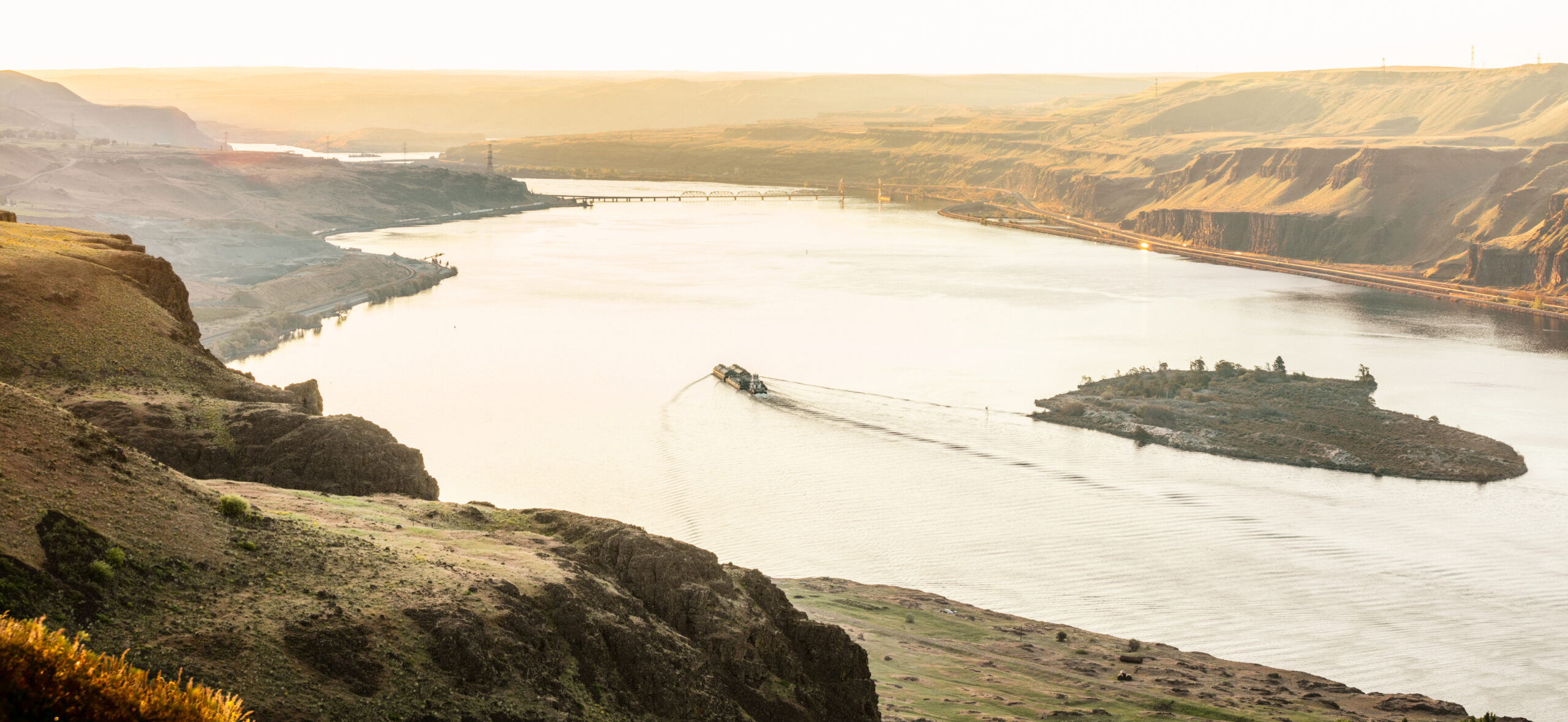The types of conflict that grab the attention of headlines tend to be “hot”—or violent—conflicts. While peacebuilding is critical in those contexts, it is also relevant in social conflicts where there may not be active violence but where there is a need to build trusting relationships among stakeholders, address historical injustices or inequities, and bring people together to solve collective issues.
The Pacific Northwest (PNW)—where the War Prevention Initiative is located—is a diverse and abundant ecosystem, but the region’s river systems are in crisis. Fish populations have declined significantly due to dams, population growth, and climate change, causing ripple effects on other species and the larger ecosystem. The Columbia River and the Snake River are lifelines for endangered salmon and other fish. Tribal nations, tribally led non-profit organizations, and other stakeholders have collaborated in environmental peacebuilding efforts to ensure healthy riverways. Thanks to a historic ten-year partnership between Tribal Nations and states in the PNW, there is an incredible opportunity to restore this ecosystem, expand clean energy production, and increase resilience in the river basin—with a dedicated $1 billion of federal support over the next decade.[1]
One of the Tribal Nations involved in this effort is the Nez Perce (or the Nimiipuu People) who have historical claims to territory spread across modern-day Idaho, Oregon, Washington, and Montana—and have witnessed the dramatic changes to the local environment. These changes directly threaten the their cultural and ancestral practices.
Kayeloni Scott, the Director for the Columbia/Snake Campaign, is an enrolled Spokane Tribal member with strong Nez Perce ancestry and describes her work as a “long standing effort to heal the Columbia and Snake Rivers.” She explains that, traditionally, the Nez Perce followed a seasonal calendar determined by the return of “life sources” like salmon runs or certain plants. Over time, Tribal elders noticed that salmon runs were starting to diminish, seasonal plants were arriving late, and other “life sources” were disappearing entirely, pointing to an unhealthy environment. The Columbia/Snake Campaign is focused on restoration efforts, which include the partial removal of four dams on the Snake River. Ms. Scott states, “The dams not only completely changed the rivers’ ecosystem but also uprooted the Nez Perce. Sacred sites, like burial sites, were lost to rising waters by shifting rivers.” As she explains, “Much of Nez Perce history and culture is tied to physical space. Without access to ancestral lands, the history and culture, often shared through stories and songs, could be forgotten.”
“If the environment is healthy, the people are healthy. And we have a long way to go to find that place,” said Scott. Healing the rivers and larger ecosystem goes beyond environmental restoration and encompasses historical trauma. For the Nez Perce, accessing ancestral sites and continuing traditional practices can accelerate the healing process and enable the building of trusting relationships with non-Tribal organizations or people.
According to Scott, “[When] we talk about peace, [we] also need to talk about justice. There’s been a lot of injustice done to several groups for centuries. This opportunity to focus on peace and peacebuilding really requires folks to acknowledge the history…[and] have an open mind to different backgrounds and cultures.”
She sees peacebuilding in her work by bringing together different stakeholders in the river basin to co-develop solutions that benefit all communities, other species, and the wider ecosystem. There is a large opposition to the effort to remove dams, but Scott emphasizes that there is always a middle ground that can bring people together. One of the biggest challenges is to build trust. All stakeholders in this context have different priorities and are involved for different reasons but come together because they care about the environment. “If we can be caring, understanding, and empathetic individuals, it can make all the difference. That’s what conservation work is all about. And it’s not just about people, but also the other life sources within our environment.”
[1] The White House, (2023, December 14) Fact Sheet: Biden-Harris administration announces 10-year partnership with Tribes and states to restore wild salmon, expand clean energy production, increase resilience, and provide energy stability in the Columbia river basin. Retrieved on June 12, 2024, from, https://www.whitehouse.gov/briefing-room/statements-releases/2023/12/14/fact-sheet-biden-harris-administration-announces-10-year-partnership-with-tribes-and-states-to-restore-wild-salmon-expand-clean-energy-production-increase-resilience-and-provide-energy-stability-i/
Photo credit: Paloma Ayala
This spotlight is featured in our Special Issue: Decolonial and Indigenous Approaches to Environmental Peacebuilding.

